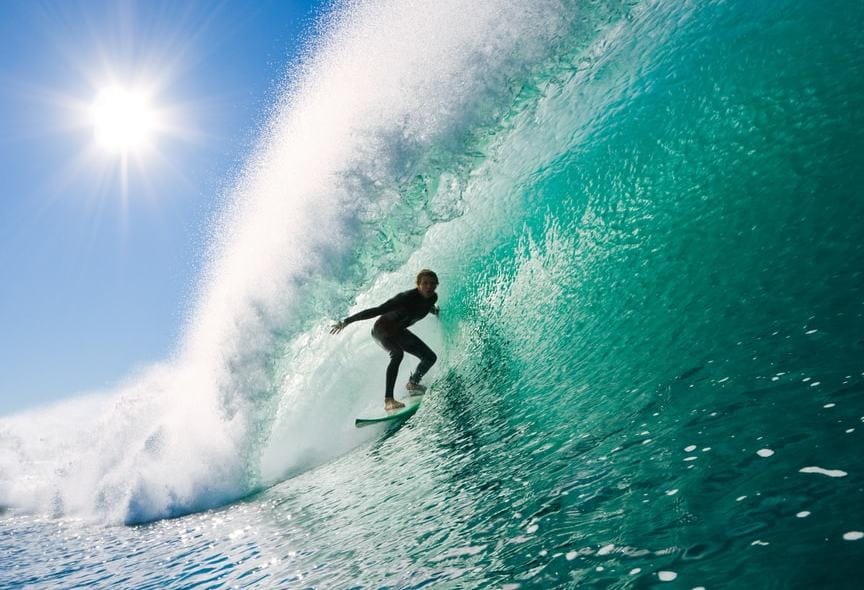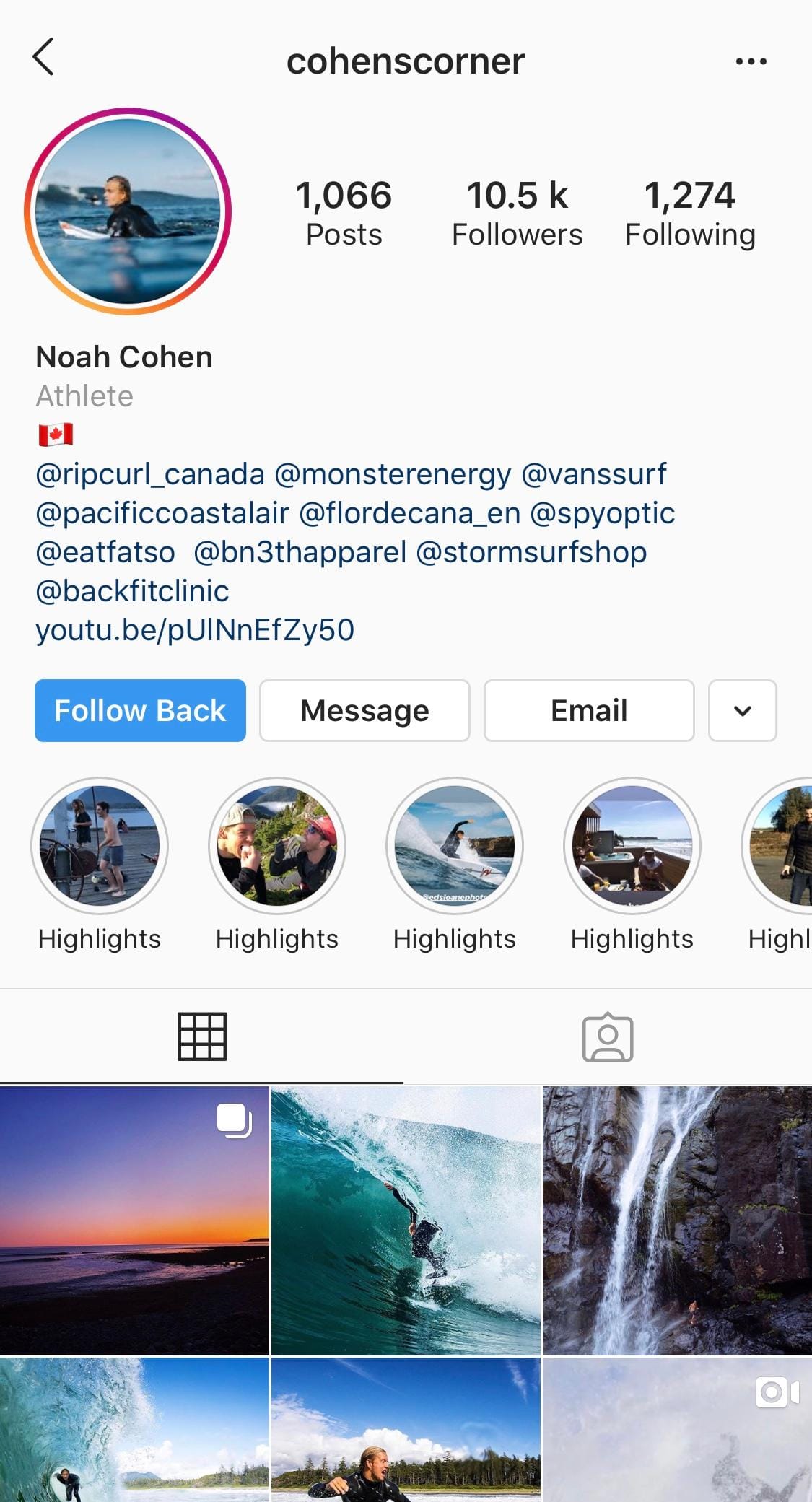
The recent $350 million sale of surfing icon Rip Curl to New Zealand outdoor clothing and accessories retailer Kathmandu marks the end of an era, with the big three pioneering Aussie surf brands (Rip Curl, Quiksilver and Billabong), all founded around the same time, now in the hands of international owners.
These companies and others, such as Hurley, Red Bull and Oakley, have been at the forefront of surfing’s transition from a lifestyle to a global business that generates about US$33 billion per annum in revenue.
But many are saddened by this transition, seeing a way of life that is instinctively in tune with the forces of nature (swell, winds, tides), and how mankind impacts on that nature, now being shaped by what one long-time surfer recently referred to as "oleaginous surf industry sharks".
While the founders of Rip Curl, Brian Singer and Doug Warbrick, began their business in Torquay, Victoria, so that they could maximise their time in the surf, the sale of Rip Curl to Kathmandu is all about Kathmandu growing and diversifying, and Singer and Warbrick being comfortable that their "baby" is in good hands ($58 million and $41 million, respectively, plus dividends, will no doubt ease any pain they may feel in selling out).
"The soul train left the station a long time ago, but there are warning signs that the cash train just might not be the glittering jewel our oily, corporate sharks think."
The acquisition from a business viewpoint is interesting. While there appears to be some synergies via stated allegiances to "sustainability and technical products", the play is really about smoothing out revenue flows, combining a predominantly winter apparel sales company with a more summer-based surfing goods company.
Add to this greater product and geographic reach, and more diversified channels to market, and the deal makes a little more sense.
However, some are questioning the fit. Kathmandu’s chief executive officer, Xavier Simonet, proposes that the businesses will continue to operate quite separately, but significant shareholder the Briscoe Group wants to see greater "cash synergies".
And so it is that a business started on the premise of its founders being able to maximise time in the water surfing has gone the way of most others – executing leveraged plays to maximise cash synergies.
Cultural cost of corporatisation
Now, business is business, and many people’s lives depend on the health and wealth of companies such as Rip Curl, Quiksilver and Billabong – but at what cost?

To many, important values relating to social justice, the environment and communities are now paid mere lip service by companies in a rush to see GoPros stuck on the heads of crew decked head-to-foot in brand merchandise, with drones and smart devices capturing their every move for instant upload to their Insta accounts or YouTube channels so that they can become industry "influencers".
The pure and simple joy of riding a wave appears lost in a cavalcade of self-interest. And this extends beyond corporations and into the very organisations that administer surfing.
As the former CEO of Surfing Queensland and Surfing Australia, Andrew Stark – who's now chief spruiker for the World Surf League’s "Wave Company" (which recently proposed a $100 million project to turn "ugly cane fields" on the Sunshine Coast into an artificial surfing wonderland) – smugly notes, Australia has “80 surf schools, over 200 events, 210 board-riding clubs, 20,000 members, 1500 coaches … and a high-performance centre”.
Yet what he failed to mention was that the high-performance centre he mentioned is a failure largely subsidised by taxpayers, and that he's seeking more taxpayer money for his Wave Company initiative. Clearly, many of the 1.7 million-plus surfers in Australia don't share in this high-performance, merched-up, social media-driven vision of surfing utopia.
Furthermore, the relentless drive to "sell" surfing is having a deleterious effect on many renowned surf breaks, which now groan under the pressure of surfing’s mainstream popularity and the need to be seen. Environmental degradation, aggressive behaviour in the water, and claims of "ownership" of particular surf spots are all the result of this pressure.
From a broader perspective, the rise and rise of "surf tourism" has led to other issues that appear incongruous with the "surfing as a lifestyle" philosophy.
We now witness surfers travelling to countries such as Indonesia where they fly in, are then whisked away to their waiting luxurious boats, to be driven (along with all their fellow friends on other boats) around idyllic surf locations while being wined (possibly Bintang beer) and dined, often in air-conditioned comfort, completely oblivious to the culture and people whose lands they visit.
Of course, the upside to this, as detailed by a University of Sydney study into the benefits of having a world-class surf break in your backyard, is somewhere in the vicinity of 2.2 per cent to the GDP of the local economy. But contrast that with what has occurred in Bali – overdevelopment, cultural dilution and disastrous environmental impacts such as plastic waste and sewage outfalls in the ocean – and it's easy to see why many are questioning the nirvana of commercialisation.
The soul train left the station a long time ago, but there are warning signs that the cash train just might not be the glittering jewel our oily, corporate sharks think.
Both Quiksilver and Billabong were acquired on the back of poor sales performances; only the elite pro surfers receive the rich endorsement deals, while the rest face diminishing endorsement deals due to falling profits.
In addition, there's a growing groundswell of anti-consumerism in surfing that has driven a refocus on soul surfing, and with this has come companies such as needESSENTIALS to take on the big, corporatised surf giants.
Professional surfing as a marketable, spectator sport hasn't exactly taken off, either, when it all comes down to it; Mother Nature and her glorious oceans don’t exactly cater to instant gratification.
The suits and their salty problem
The reality is that trying to commodify and sell a lifestyle rooted in rebellion and soulful expression can only end in a diminution or loss of cultural credibility, and consequently brand degradation, if it's being driven by corporations and profits.
It'll be interesting, in the case of Rip Curl, to see how the suits manage that salty problem, and whether they do a better job of it than the industry participants who have come before them, who, according to Australia’s first world surfing champion, Bernard "Midget" Farrelly AO, “could have done more … so that it would mean more today than it does”.
“I think that when you look at it today, it doesn’t inspire anybody,” said Farrelly, who sadly passed away in 2016 after a life of surfing. “It did once.”
Thundercloud 15mins from One Palm Media 🌴 on Vimeo.
Find out more about this topic and study opportunities at the Graduate Study Expo





